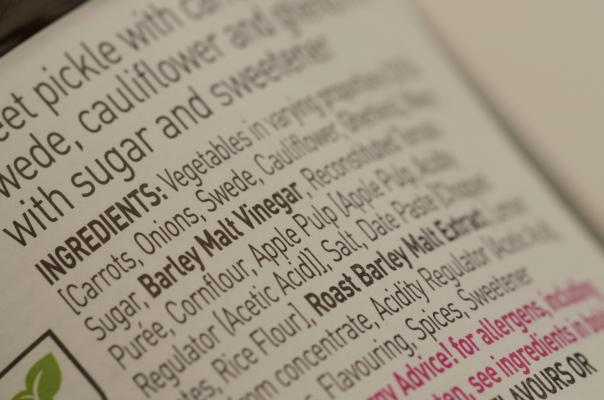
While the availability of vegan and ‘free from’ products has increased, so also has the confusion around labelling on these products, which has, in some cases, been fatal.
New research by the Food Standards Agency (FSA) showed 62% of people who react to animal-based products, or who buy for someone who does, are confident that products labelled ‘vegan’ are safe to eat. This is not necessarily correct.
Firstly, it is important to understand the terminology. The term ‘vegan’ refers to products that do not contain any animal-derived ingredients or by-products.
Vegan labelling on packaging provides assurance to consumers who choose to avoid animal products for ethical, environmental, or health reasons. However, in the UK, the use of vegan labels is not strictly regulated by law.
‘Free from’ foods, meanwhile, are special ranges of foods made without certain allergens. If a label states that the product is ‘free-from milk’ or, ‘peanut free’, it has to be based on specific and rigorous controls. This includes checking that all ingredients and packing materials do not contain this allergen and that cross-contamination from other foods made on site is prevented.
Then there is Precautionary Allergen Labelling (PAL), commonly known as ‘may contain’, these statements are voluntary and not regulated by law. PAL is used to communicate the possible unintentional presence of a food allergen at any stage in the food chain.
Vegan labelling does not have a legal UK or EU definition regarding what they can or cannot contain. Voluntary labelling of terms such as ‘vegan’ are covered by the Food Information Regulations 2014 and Consumer Protection from Unfair Trading Regulations 2008, which states products cannot be misleading, and as a vegan diet does not include animal products, by labelling a food vegan the food must therefore not contain animal products.
This, however, does not mean the food will be safe from contamination or traces of animal products as a vegan claim does not need to go through any rigorous tests. This means a food can be labelled vegan and have a PAL statement for milk or egg.
Vegan food can be prepared in factories and areas where products of animal origin may be present. This could mean that some vegan food products could unintentionally contain allergens.
The Vegan Trademark was designed to provide clarity for those following vegan diets and removing the need to read through ingredients list. And whilst the trademark standards require minimising cross-contamination as far as possible, rigorous tests of complete removal of animal products are not required.
As caterers you should, therefore:
- Not rely on vegan labelling
- Always read the ingredients list and PAL/ may contain statements
- ‘Free from’ does not mean free of all allergies, always check the ingredients list
For more information on food procurement expert allmanhall, visit here.